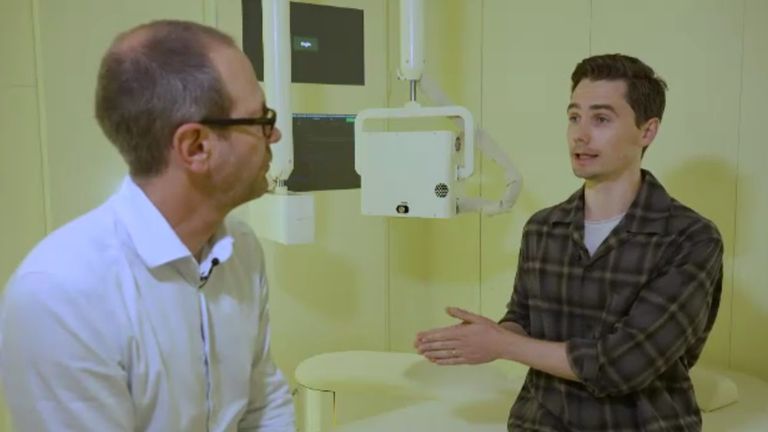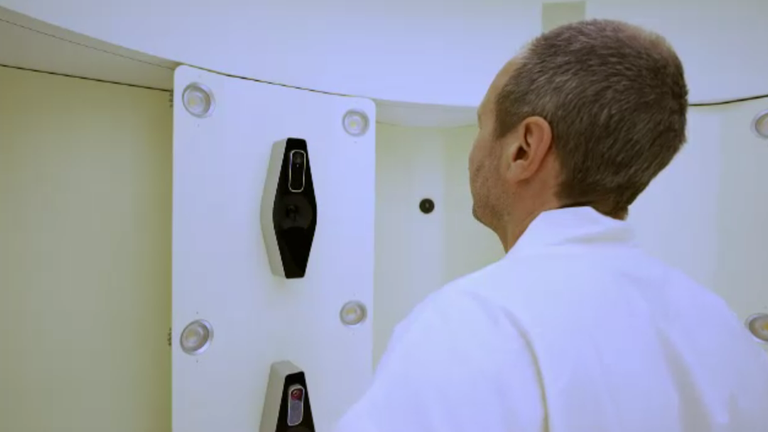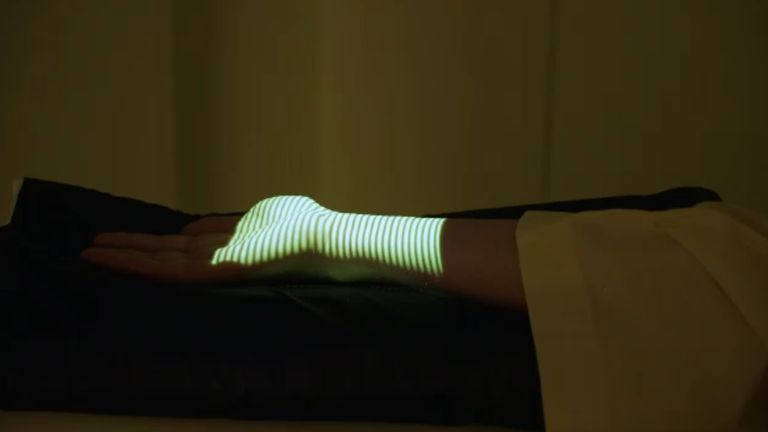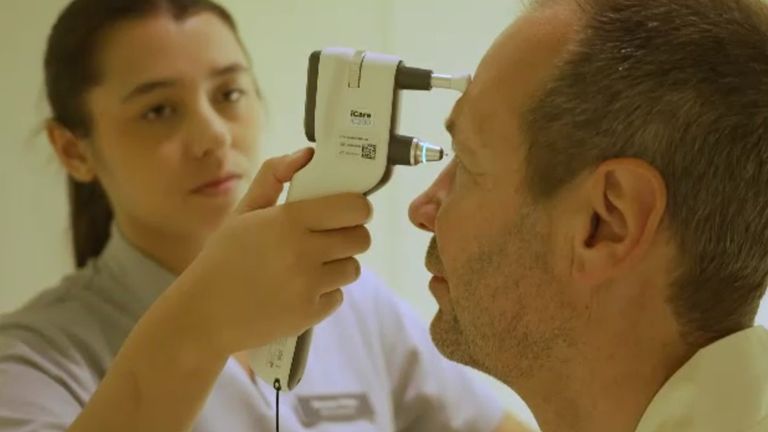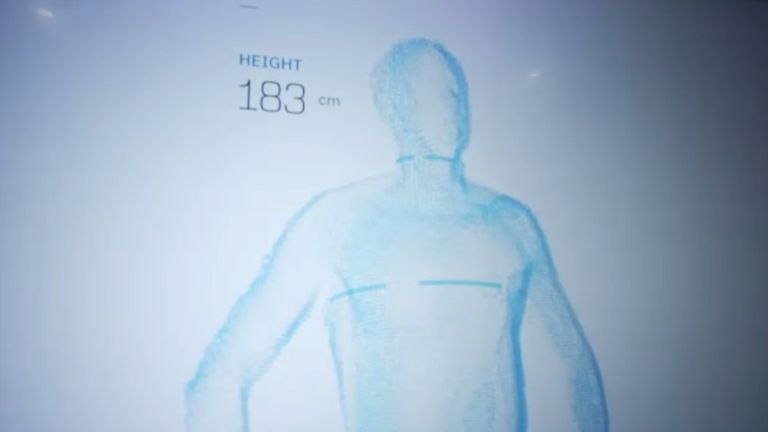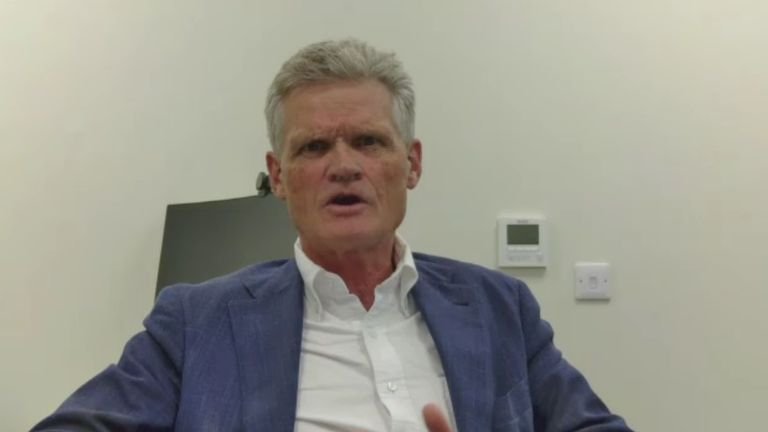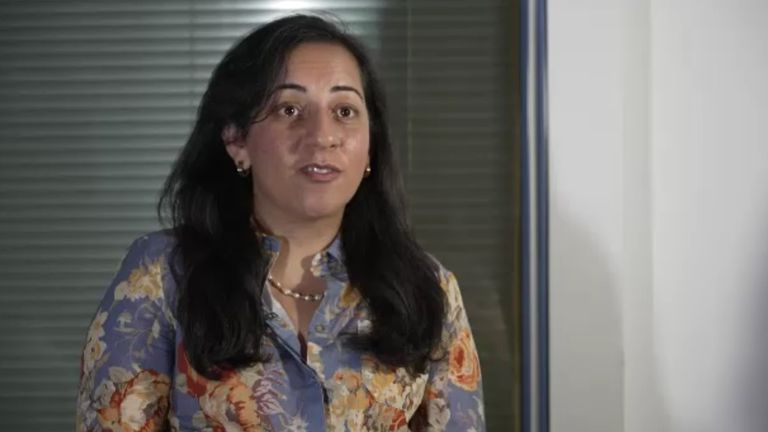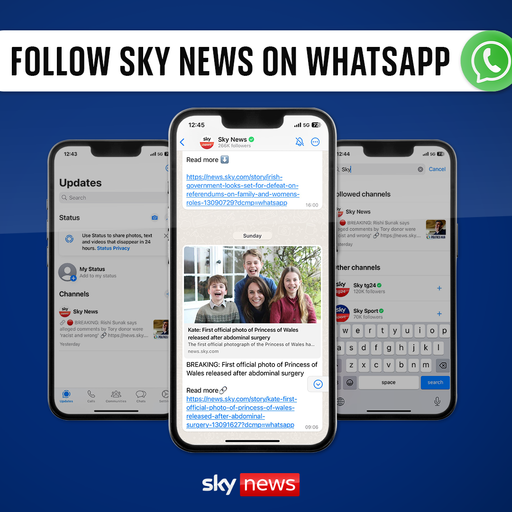An indoor clinic using HD cameras, radar and lasers during high-tech MOTs
A new high-tech clinic founded by the CEO of Spotify hopes to change health care by detecting the signs of disease long before symptoms appear.
Neko Health uses high-resolution cameras, lasers and radar to capture millions of data points around the body, diagnose potentially dangerous problems and even improve health. at risk in the future.
It’s the latest in a wave of companies offering controversial high-tech MOTs. Some doctors warn that they can increase health inequalities and add to NHS The workload of transferring people with results can be important.
Daniel Ek – the CEO of the music streaming service – and his partner Hjalmar Nilsonne want to enter the conversation.
In one of the clinic’s brightly lit rooms, Hjalmar tells me that health care has always been about treating symptoms – “reactive”, as he calls it.
“We have to find a way to be more active, to prevent more, to help people live longer,” he says.
“Instead of giving them medicine, give them long-term health.”
Neko Health’s first clinic outside its hometown of Stockholm, Sweden, is a world away from the busy London shopping street below it.
It looks like something straight out of sci-fi.
In the middle of the room there is a booth similar to the teleporters in Star Trek.
Go inside with nine cameras – HD, 3D and thermal – take more than 2,000 images to build a high-resolution map of every mole, spot and blemish on your skin.
If you return for an annual check-up, it allows the clinic to track changes in size, pigmentation and other warning signs of skin cancer.
Next to the booth is some technology that could easily have been used by Star Trek’s Dr McCoy on his fellow astronauts.
To see the early signs of heart disease and the arteries, a laser checks the stiffness of the arterial walls, a flash of green light checks the blood flow and the blood pressure cuffs read at the same time. one on four legs.
There is also a blood sample taken to measure cholesterol, blood sugar, inflammatory markers and more.
In less than an hour, millions of data points are collected and analyzed, with the doctor interpreting the findings.
For the record I, like 79% of those examined in the first year of the Stockholm clinic, received a clean bill of health.
But 14% of Swedish consumers needed treatment for something picked up in a health check. And 1% had potentially life-saving care for previously undiagnosed serious problems.
More than a quarter of customers have rebooked within a year. Most, it seems, consider checks worth £300.
It is a growing market.
You can pay several thousand to companies that provide whole body MRI equipment to see what’s going on under the skin.
Kim Kardashian gave a celebrity nod to a company called Prenuvo by referring to its scanner as a “life-saving machine” in an Instagram post.
The shift toward disease prevention has great champions.
Professor Sir John Bell, now of the Ellison Institute of Technology in Oxford, was involved in the creation of the UK Biobank, Genomics England, and more recently the Our Future Health study – all steps towards deeper access to patient data to see signs of death.
He says preventive health screening will be the norm in the next 10 years.
It’s not the usual health questions the NHS asks mid-life patients now. There will be more and more technology – and AI – controlling our inner lives.
But it is a paradigm shift for the NHS.
Professor Bell says: “People don’t want to talk to you about heart problems until you have chest pains, and then they want to talk to you.”
“But the problem is, they catch it too late because for the last 35 or 40 years it’s been accumulating in your coronary arteries. You’ve been asymptomatic, so nobody has done anything therefore.
“Understanding which diseases you have and catching them early will mean you have a much longer life expectancy.”
But some doctors are more cautious.
Dr Saira Ghafur, a respiratory specialist at Imperial College London, is concerned that people who are likely to have health problems are the least likely to be able to get a private test. It could make health inequalities worse, he feared.
There are also risks of private health screenings being added to NHS waiting lists, Dr Ghafur tells me. They will pick out a lot of issues that need to be followed up by the NHS but ultimately nothing to worry about.
Then there is the lack of evidence that the content taken is relevant.
He says: “We have to make sure that we do the prevention correctly. “For that, we need very strong evidence.
“But we will have to wait many years to be able to show that doing this analysis, collecting these data points, really produced beneficial results (for health).”
That hasn’t stopped people from signing up to Neko Health. Its Stockholm clinic has a waiting list of 20,000 and expects strong demand for checks at its London branch.
Hjalmar Nilsonne comes from a family of doctors and says he understands the stress of a demanding medical job.
The company checks itself to make sure the problems found in the tests are significant before telling people to seek NHS treatment.
He wants health services to see preventive health screening as a help, not a hindrance.
He says: “70% of public health care costs are from chronic diseases. “Many chronic diseases can be prevented or greatly delayed if you catch them early.
“So we’re really focused on finding the early signs that things are going wrong and helping you find ways to combat that and avoid it in the first place.”
#indoor #clinic #cameras #radar #lasers #hightech #MOTs
